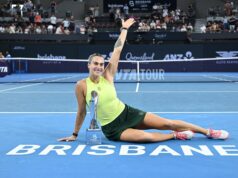The Chairman of the Article 146 Committee of Inquiry has formally presented the committee’s recommendations to President John Dramani Mahama regarding the first of three petitions seeking the removal of Chief Justice Gertrude Araba Esaaba Sackey Torkornoo.
The submission marks a critical stage in a high-stakes constitutional process that began earlier this year, following President Mahama’s determination that a prima facie case had been established in all three petitions. In accordance with Article 146 of Ghana’s 1992 Constitution, the President constituted a five-member committee to investigate the allegations.
The committee, chaired by Supreme Court Justice Gabriel Scott Pwamang, includes former Auditor-General Daniel Yaw Domelevo, Major Flora Bazaanura Dalugo of the Ghana Armed Forces, and Professor James Sefah Dzisah of the University of Ghana. The panel has completed its inquiry and submitted its findings to the President, who is now expected to review the report and announce his decision in the coming weeks.
The process has been closely watched by legal professionals, civil society groups, and political stakeholders, amid growing debate over its implications for judicial independence and constitutional governance.
Background to the Suspension
On April 22, 2025, President Mahama suspended Chief Justice Torkornoo from office, invoking Article 146(6) of the Constitution. The article allows the President, in consultation with the Council of State, to suspend a Supreme Court judge once a prima facie case has been established, pending a formal investigation by a specially constituted committee.
Justice Paul Baffoe-Bonnie, the most senior member of the Supreme Court, was appointed as Acting Chief Justice during the investigation.
However, the suspension has sparked widespread controversy. The Ghana Bar Association (GBA) strongly condemned the move, labelling it unconstitutional. The GBA argued that President Mahama failed to issue the necessary Constitutional Instrument or regulations as required under Article 296, which governs the exercise of discretionary presidential power.
Civil society organisation Centre for Democratic Movement (CDM) also criticised the decision, calling it a breach of constitutional norms and judicial independence. The CDM further questioned the neutrality of the inquiry committee, describing its composition as politically tilted and lacking transparency.
Chief Justice Fights Back
Chief Justice Torkornoo has refused to step down, describing the proceedings as “arbitrary,” “cruel,” and unconstitutional. She has maintained her innocence and vowed to defend her office and reputation, arguing that resigning would mean conceding to a flawed process and surrendering her constitutional rights.
The opposition New Patriotic Party (NPP) has also thrown its weight behind the embattled Chief Justice, condemning the suspension as a direct attack on Ghana’s democratic institutions. The party warned that the ongoing process threatens the country’s commitment to the rule of law and could erode public confidence in the judiciary.
What’s Next?
With the committee’s report now in hand, President Mahama is constitutionally required to act on its recommendations and communicate the final decision to the nation. As Ghana waits, the outcom








